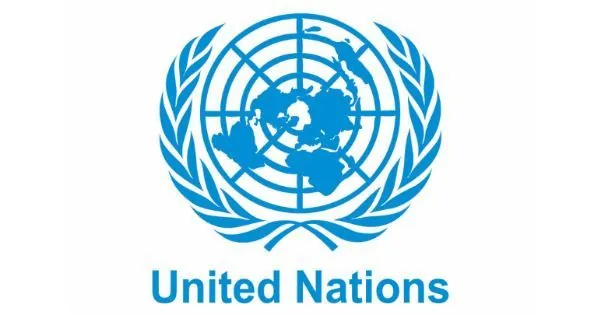

The UN Conference on Trade and Development (UNCTAD) said on Thursday that around one trillion dollars of debt owed by developing countries would be cancelled under a proposed global deal.
The UN agency said that the plan was to help them overcome the impact of the coronavirus pandemic.
The world’s developing economies, which were already struggling with a rapidly growing debt burden, must now confront a record global downturn, plummeting prices for their oil and commodities exports and weakening local currencies.
At the same time, they need to spend more money on healthcare and to protect their economies. Some 64 low-income countries currently spend more on debt service than their health systems, according to UNCTAD.
“This is a world where defaults by developing nations on their debt is inevitable,” Richard Kozul-Wright, director of UNCTAD’s Division on Globalisation and Development Strategies, said during a video conference with newsmen.
In a report calling for a plan to relieve developing countries’ debt burden, UNCTAD estimated their liquidity and financing requirements due to the pandemic amount to at least 2.5 trillion dollars.
High-income developing countries have debt service obligations of between two dollars to 2.3 trillion dollars in 2020 and 2021 alone, while middle and low-income countries have debt service obligations of 700 billion dollars to 1.1 trillion dollars.
Having poured some eight trillion dollars into stimulus for their own economies, the Group of 20 wealthy nations (G20) last week agreed to suspend the bilateral debt service payments by the world’s poorest countries until the end of the year.
“It’s kicking the can down the road. You extend the problem and you pretend it’s going to go away in two or three years’ time if growth picks up in the world economy.
“We don’t think this is credible,” Kozul-Wright said.
UNCTAD calculated the G20’s debt moratorium would cover 20 billion dollars of public debt to official bilateral creditors.
An additional eight billion dollars would be included if all private creditors joined the initiative, and a further 12 billion dollars, if all multilateral creditors did as well.
That has little impact on the developing world’s overall debt burden, the agency said, and the money would need to be paid back with interest at the end of the suspension.
Instead, it called for a “Global Debt Deal” that would grant initial one-year debt standstills on request, which could be extended after a review and would include a stay on all creditor enforcement actions.
Debt relief and restructuring programmes would follow to ensure long-term debt sustainability, a process that would require significant debt cancellation.
Using as a benchmark the case of post-war Germany, which saw about half its debt cancelled, UNCTAD calculated the figure for developing economies would be around one trillion dollars.
An independent debt authority would oversee the process rather than the International Monetary Fund and World Bank, which are among poor countries’ leading creditors and therefore not impartial, according to UNCTAD.
Kozul-Wright said it was in the interest of wealthy nations to support a plan allowing developing countries to concentrate their resources on fighting the new coronavirus rather than their external debt.
“This is not a charity exercise. The health pandemic will eventually hit much of the south.
“If that happens there will be a blowback in terms of health to countries that thought they had somehow conquered this virus. That’s almost inevitable,” he said. (Reuters/NAN)
YOU SHOULD NOT MISS THESE HEADLINES FROM NIGERIAN TRIBUNE
Buy and read digital replicas of your TRIBUNE titles by subscribing through E-VENDING
Make No Mistake, Coronavirus Will Be With Us For A Long Time, Says WHO DG
The head of the World Health Organisation (WHO), Tedros Adhanom Ghebreyesus, said on Wednesday that he hoped the Trump administration would reconsider its suspension of funding, but that his main focus was on ending the pandemic and saving lives, Reuters reported… Read full story
COVID-19: Governors Adopt Two-Week Inter-State Lockdown • Call for decentralisation of COVID-19 response
The 36 state governors, on Wednesday, unanimously resolved to adopt a two-week inter-state lockdown as part of measures aimed at containing the spread of coronavirus across the country… Read full story
Covid-19: Chinese Treatment Of Africans
IN the wake of the deadly Covid-19 pandemic experience, China has treated African residents within its borders like scum. The situation has been so bad that it is actually difficult to believe that its previous investments in the continent had wholesome intentions. China’s inhuman and hostile disposition to Africans in China… Read full story
FG Bans Inter-State Movement Of COVID-19 Patients
The Federal Government has banned inter-state movement of Coronavirus (COVID-19) patients in the country. Dr Osagie Ehanire, Minister of Health, said this on Wednesday in Abuja, at the Presidential Taskforce (PTF), briefing on COVID-19… Read full story
Carruthers claimed he was drunk and remembered little of what happened.
The Nigerian Education Loan Fund (NELFUND) has said that it has disbursed over N73.2 billion…
The Nigerian Education Loan Fund (NELFUND) has disclosed plans to develop a centralised job portal…
Federal Government on Thursday reiterated Nigeria's commitment towards the existing bilateral relations with United Arab…
A member of the National Youth Service Corps (NYSC), Marvelous Otarigho, has donated laboratory equipment…
The Independent National Electoral Commission (INEC) has extended the Continuous Voter Registration (CVR) exercise in…
This website uses cookies.